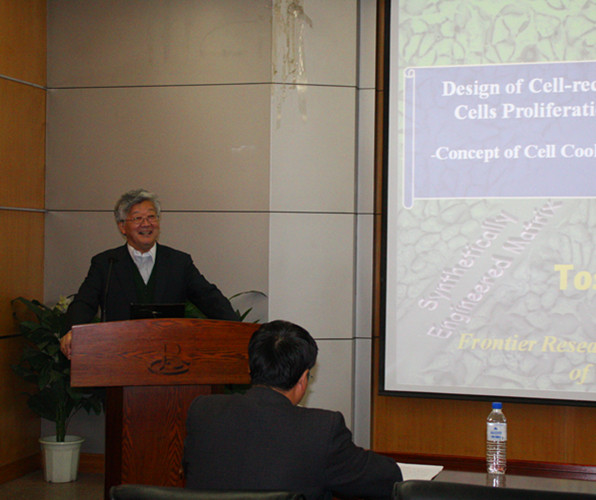
Toshihiro Akaike , Japanese scientist, professor of Frontier Research Center & Graduate School of Bioscience and Biotechnology,Tokyo Institute of Technology was invited to give a talk entitled “Design of Cell-recognizable Nanobiomaterials for Es/iPS Cells Proliferation and Differentiation -Concept of Single-cellular Cooking Plate for Regenerative medicine” at the CIAC on November 3, 2011.
Over the last 35 years, synthetic biomaterial design has demonstrated an unquestionable potential for use as extracellular microenvironment to mimic the regulatory characteristics of natural extracellular matrices (ECMs) and growth factors, both for regenerative medicine and tissue engineering. Prof. Akaike’s group found that mouse embryonic stem (ES) cells cultured on chimera protein (E-cad-Fc)-coated surface had unique single cell morphology, higher proliferative ability and transfection efficiency than those grown under conventional conditions. Moreover, current in vitro cell cultivation strategies in presence of soluble growth factors are not optimal for stem cell proliferation and differentiation studies where frequent media changes are required.
In his talke, it was shown that immobilized LIF and E-cadherin can maintain ES cells efficiently with lower dependency of ES cells on LIF. In addition to ES cell proliferation, N-cad-Fc and E-cad-Fc immobilized ECM can be used to induce efficient neural and hepatic differentiation at a single cell level. |
